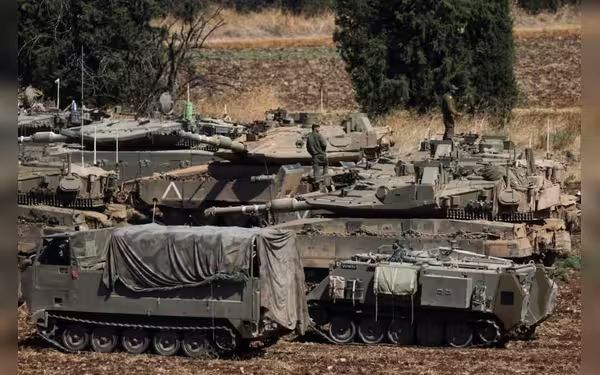Sunday, October 6, 2024 12:34 AM
Israeli Military Interventions in Lebanon: A 50-Year Overview
- Israel's military presence in Lebanon lasted 22 years.
- UNIFIL established to monitor hostilities in Lebanon.
- Ongoing conflict involves various regional and international players.
 Image Credits: tribune.com.pk
Image Credits: tribune.com.pkExplore the complexities of 50 years of Israeli military interventions in Lebanon and their lasting impact on regional stability.
For over fifty years, the relationship between Israel and Lebanon has been marked by conflict and military interventions. The situation escalated significantly in 1978 with the launch of "Operation Litani," a military operation by Israel aimed at pushing back Palestinian militants based in southern Lebanon. This operation was met with widespread condemnation from the international community, particularly the United Nations, which called for Israel to withdraw its forces from Lebanese territory.
Despite the UN's demands, Israel did not fully withdraw its troops until June 16, 2000, a staggering 22 years later. This prolonged military presence not only affected the political landscape of Lebanon but also had lasting implications for the region as a whole. The UN Security Council took action by unanimously passing Resolution 425 on March 19, 1978, which established the United Nations Interim Force in Lebanon (UNIFIL). This peacekeeping force is still operational today, tasked with monitoring the cessation of hostilities and ensuring that the area remains free of armed personnel other than those of the Lebanese government.
The ongoing presence of UNIFIL highlights the complexities of the Israeli-Lebanese conflict. While the UN's efforts aim to maintain peace, the underlying issues remain unresolved. The situation is further complicated by the involvement of various regional and international players, each with their own interests and agendas. As a result, the people of Lebanon have endured decades of instability, with many still feeling the repercussions of these interventions.
Looking back at fifty years of Israeli interventions in Lebanon, it is clear that the path to peace is fraught with challenges. The historical context of these military actions serves as a reminder of the importance of dialogue and diplomacy in resolving conflicts. As we reflect on this tumultuous history, it becomes evident that understanding the past is crucial for building a more peaceful future in the region. The lessons learned from these interventions should guide current and future efforts to foster stability and cooperation among nations.













